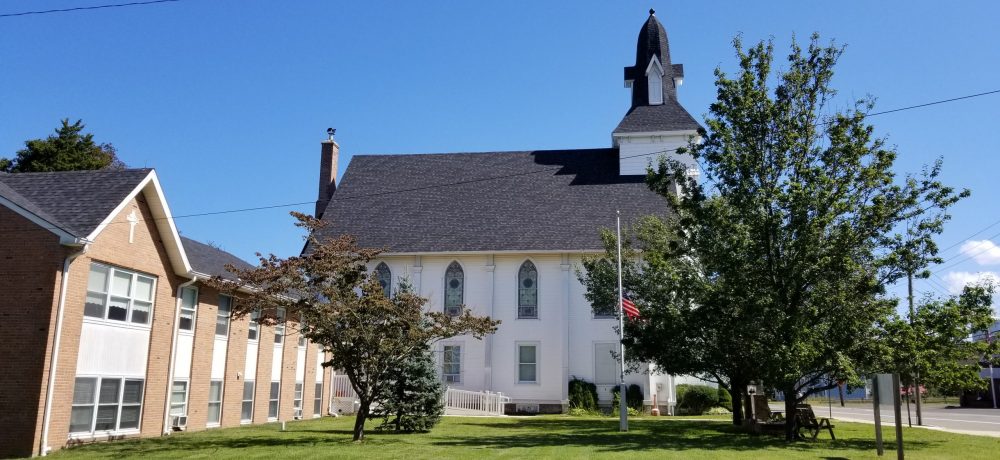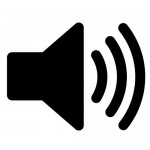Pastor Choi talks about Christ’s mission statement today. Jesus the Messiah, the Anointed One of God, came to accomplish God’s given mission to preach the good news to the humble and meek, to bind up the broken-hearted, to set the captives free from the bondage of sin and death, and to pay the wages of our sin forever through His own death.
Following is a summary of the sermon:
Title: Christ’s Mission Statement
Text: Luke 4:14-21, Isaiah 61:1-2
Luke 4:14-21New American Standard Bible (NASB)
Jesus’ Public Ministry
14 And Jesus returned to Galilee in the power of the Spirit, and news about Him spread through all the surrounding district. 15 And He began teaching in their synagogues and was praised by all.
16 And He came to Nazareth, where He had been brought up; and as was His custom, He entered the synagogue on the Sabbath, and stood up to read. 17 And the book of the prophet Isaiah was handed to Him. And He opened the book and found the place where it was written,
18 “The Spirit of the Lord is upon Me,
Because He anointed Me to preach the gospel to the poor.
He has sent Me to proclaim release to the captives,
And recovery of sight to the blind,
To set free those who are oppressed,
19 To proclaim the favorable year of the Lord.”
20 And He closed the book, gave it back to the attendant and sat down; and the eyes of all in the synagogue were fixed on Him. 21 And He began to say to them, “Today this Scripture has been fulfilled in your hearing.”
Introduction
Imagine this: Using a time machine, you travel back to the first century Israel to the town of Nazareth the hometown of Jesus. The first thing you notice is that it is a very small town with a population under 500. It happens to be a Sabbath Day. You walk into the synagogue that is built on a hill. You enter there and quietly sit while waiting for the service to start. There are about 30-40 people gathered, men and women altogether. Not long after you sit down, Jesus comes in. The service starts. Then, He stands up which means He has something to say to the people. The attendant of the synagogue brings Him the Torah. He opens Isaiah 61:1-2 (the prophecy on the Messiah) and reads it aloud to the people. Then He sits down and says to the congregation the prophecy that they just heard has been fulfilled in their hearing that day. In other words, Jesus claims that He is the Messiah–the Anointed–God’s chosen one. You hear Him saying it in plain Aramaic. He is the Messiah. Most of the folks, however, don’t get it.
Contents
In fact, that’s exactly what happened one day two thousand years ago in Nazareth Jesus’ hometown (Luke 4:16-30). Before He launched His public ministry in the district of Galilee, Jesus declared to everyone in His hometown that He was the Messiah of God. FYI: the Hebrew word ‘Messiah’ is same as Christ. The anointed one of God. In the Old Testament times, in three occasions a person was anointed with oil to announce that God has set them apart for certain tasks: kings for ruling, priests for sacrifices and prayers, and the prophets for delivering God’s message to God’s people. The Messiah has all three offices: king of kings, the High Priest for our sins, and the Messenger of God’s Word. Jesus is the Messiah sent by God. This morning, we will carefully listen to the Messiah and His mission statement.
Isaiah 61:1-2 is not only the prophecy on the Messiah but it also tells us about his mission. It is Christ’s mission statement in which Jesus laid out why God anointed Him, to whom He was sent, and what He would do for the people. Let me unpack His mission statement:
First, God sent the Messiah to preach the Good News to the poor. The first task for the Messiah is to bring the Good News of God to the poor–the recipients of the Good News. The original meaning of ‘to preach the Good News,’ ‘to bring the good tidings,’ and ‘to bring a joyful message’ carries the meaning of ‘to rub/smooth the face.’ By bringing the Messiah, God wants to comfort His people.
The Hebrew word for ‘poor’ (ahnahv) also deserves our attention here. It can be translated in five different ways: poor, afflicted, weak, humble, or meek. Consider the two slightly different versions of the Beatitudes: in Matthew Jesus says, “Blessed are the poor in spirit, for theirs is the kingdom of heaven (Matthew 5:3, NASB). In Luke Jesus says, “Blessed are you who are poor, for yours is the kingdom of God ” (Luke 6:20, NASB). Matthew was a Jew who understood Jesus’ usage of the word (ahnahv) and, therefore, translated it ‘those who are poor in spirit (that is, humble),’ while Luke a Gentile literally translated as the poor with meager material possessions.
Knowing the usage of this adjective ‘poor’ (ahnahv) in various settings, I am inclined to go with that the Messiah preaches the Good News to the humble and meek. The humble and meek means that they are neither strong nor mighty. Perfectly understanding their weaknesses, they are not high on themselves. They readily acknowledge that they need One who is mightier and stronger than themselves. They are ready to accept God into their lives.
What about the proud and the mighty–the opposite of humble and meek? Rich folks tend to be haughty. Jesus says that it is extremely difficult for the rich to get into the Kingdom of Heaven: “Again I say to you, it is easier for a camel to go through the eye of a needle, than for a rich man to enter the kingdom of God.” (Matthew 19:24). Why? Because, they are proud, relying not on God but on their own might. Furthermore, they rely on the power of money and pursue and worship mammon. They also tend to look down on folks believing that they are better than others. God is opposed to the proud. Be sure that you stay humble to avoid self-reliance and to prevent yourself from worshiping mammon.
The second mission of the Messiah is to bind up the broken-hearted. The Hebrew word for ‘to bind’ is habash: bind up the wounds. So, the Messiah came to bind up the wounds of the broken-hearted. He came to comfort the distressed and emotionally wounded. I am thinking of those folks who have been emotionally mistreated and verbally abused in their relationships. The Messiah came for those folks to bind up their wounds and make them whole again. The imagery that comes to my mind is gentle and loving, kind hands that bind up our wounds. In fact, Jesus is such a kind and loving God. Isaiah 42:3 says about the Messiah: “A bruised reed he will not break and a smoldering wick he will not snuff out.” Matthew 11:28-29: “Come to Me, all who are weary and heavy-laden, and I will give you rest. 29 Take My yoke upon you and learn from Me, for I am gentle and humble in heart, and you will find rest for your souls” (NASB). The Church–the Body of Christ– also should be the sanctuary for the wounded spirits and crushed souls.
Thirdly, Christ came to set free the captives and set at liberty those who are oppressed. Here, Jesus the Messiah is not talking about political liberation through revolution. Rather, He refers to the liberty and freedom from both spiritual and physical evils. The Messiah came to free us from oppression and harassment, both spiritual and physical, imposed on us by our enemy the Devil. As a matter of fact, if I had to choose one word to summarize what the Christian life is all about, I would choose ‘freedom’– the first and foremost benefit I enjoy as a Christian. Nothing and nobody owns me but God. Christ set me free from the power of sin and from the fear of death. I am no longer enslaved to sin. I am no longer under the bondage of sin. I am no longer oppressed by Satan, either physically or spiritually (Acts10:38). This is especially essential and true to those with addictions. Christ is the Liberator. Christ is the truth. He liberates people from the strong grip of sin and addiction (John 8:32). That’s what He did when He was on earth. He would heal many people who were physically inflicted and set them free from the spiritual oppressions by Satan.
Last, but not least, Christ came to proclaim to all Jubilee (the favorable year of the LORD). What is a Jubilee? It is every fiftieth year when a release is proclaimed through the land to all its inhabitants (Leviticus 25:10). It is the year when the people of God return to their own property and to their families. Slaves become free and people forgive each other’s debt. Christ declares that He has forgiven our debts through His own death once and for all. Indeed, the Messiah paid the wages of our sins through His own death so that we may forever go free from the consequences of our iniquities. In the mid-course of His ministry, Christ affirmed His mission as this: “For even the Son of Man did not come to be served, but to serve, and to give His life a ransom for many”(Mark 10:45, NASB). To give His life as a ransom for many. He completed that mission on the cross offering His sinless and innocent body on behalf of all who would believe in His atoning death on the cross. The sinless for the sinful. I pray that all of us understand how great God’s love for us to send His only begotten Son Jesus the Messiah to do that job on the cross— to save us from our sins and let us go free. Some day we will be eternally grateful for the Messiah.
Conclusion
On the night before He was crucified, Jesus the Messiah was standing before the high priest. The high priest asked Jesus one question: Are you the Christ, the Son of the Blessed One? (Mark 14:61). And Jesus said, “I am; and you shall see the Son of Man sitting at the right hand of Power, and coming with the clouds of heaven” (Mark 14:62, NASB). 2,000 years ago, Jesus the Messiah came to us for the first time with the Good News of redemption and healing. The same Messiah will come again this time not to redeem the sin of the world but as the Judge in the last days (Hebrews 9:28).
May we find ourselves blameless and pure in the sight of the Messiah on that day (2 Corinthians 2:11). Amen.

